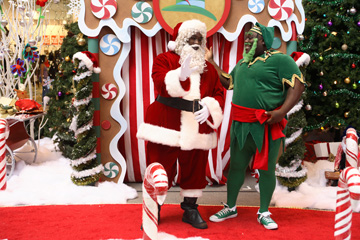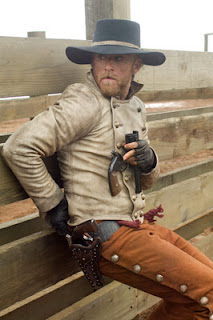Interview with “Kite Runner” star Khalid Abdalla
Posted on December 14, 2007 at 8:00 am
Khalid Abdalla stars in “The Kite Runner,” based on the world-wide best-seller by Khaled Hosseini. The book, the first-ever Afghan novel published in English, was a word-of-mouth sensation. It is the story of Amir, who left Afghanistan as a child following the Soviet occupation and returns during the time of Taliban control to find the son of his childhood friend. Abdalla, a Cambridge-educated actor of Egyptian heritage, plays Amir as an adult.
You have an extensive background in theater. How is it different preparing for appearing on screen?
It all came about by accident, just like my getting into acting in the first place. With acting, it was a teacher who came up to me one day and invited me to audition for a part and with “United 93” it was a case of them looking for actors of my descent in London. My background’s in theater but both mediums are about story-telling. You’re trying to find the best way to tell the story. From a director’s perspective it’s very different but for an actor it is very similar. There was a bigger difference between “United 93” and “Kite Runner” than between theater and movies. In “United 93” our average take was 20 minutes, but in “The Kite Runner” the longest one was an hour and 15 minutes. We used two cameras and variety of tricks in continuity. But the actors had to sustain the performance for a much longer time, as we do in theater.
One thing that is a huge difference is with a play you have to rehearse with a sense of the rhythm of the entire piece. That’s one reason you have to rehearse so long. With a film you have to concentrate on each scene and the majority of the rhythm is made by the editing so that in some ways frees you. But in both you find a performance essentially the same way. It always starts off badly, gets going, then slips a little bit. In film you start with a master shot, then cover it. It follows the rhythm of a rehearsal. You’ve always got to find it in a way that is sustainable relative to the whole.
You share the role of Amir with Zekeria Ebrahimi, who plays your character as a child. Did you coordinate at all in creating the character?
We didn’t go out actively to create a thruline, the “how do you hold a cup of tea” sort of thing, but we were around each other a lot. I watched the whole of that section on the set and I learned to fly a kite with him. There was the power of suggestion as well. We play the same story and that story carries both of us. You read me through the experience of one, having left my country and two, having gone through that history with Hassan. When you see me in the bar having the conversation with my father when he says, “I wish Hassan were here,” how I respond to him. You also see Amir begin to stand up to his father.


